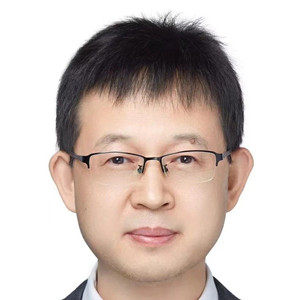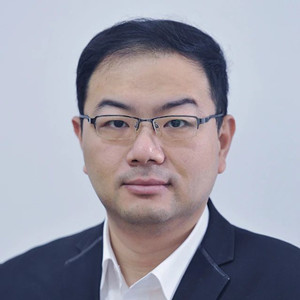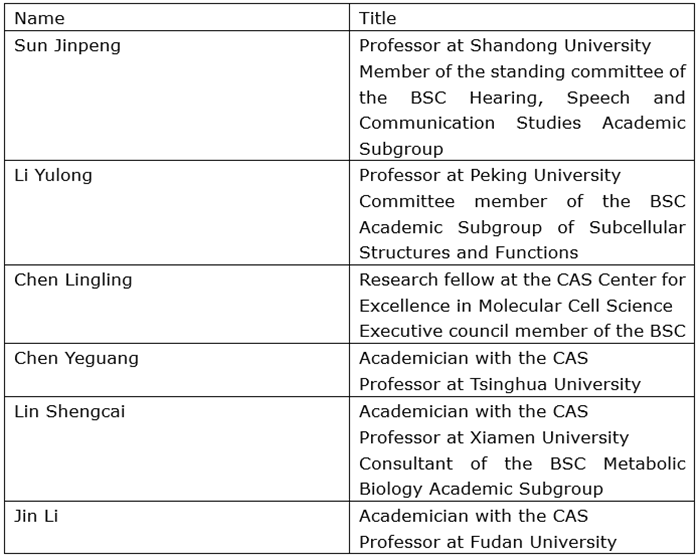Home> News
Eight BSC members receive State Scientific Innovation and Pioneer Award
Updated: 2023-06-06
Eight members of the Biophysical Society of China (BSC) won the third State Scientific Innovation and Pioneer Award, according to the list released by the China Association for Science and Technology (CAST) on May 30 - the seventh National Science and Technology Workers' Day.

Liu Guanghui
Liu Guanghui, a council member of the BSC, received the State Scientific Innovation and Pioneer Medal.
Also a research fellow at the Institute of Zoology at the Chinese Academy of Sciences (CAS), Liu studies the genetic and epigenetic information of human aging, the mechanism and precise treatment of human diseases based on stem cell technology, and the development and application of new genome editing and gene therapy technologies.

Chai Renjie
Chai Renjie, chief professor at Southeast University and president of the BSC Hearing, Speech and Communication Studies Academic Subgroup, was awarded the State Scientific Innovation and Pioneer Certificate.
Chai has long been committed to the regeneration and protection of inner ear hair cells and auditory neurons. As the discoverer of inner ear stem cells, Chai was the first to regulate the regeneration of functional hair cells from inner ear stem cells through gene therapy in the domestic academic circle. He also pioneered a new comprehensive technical system combining neural stem cell transplantation with artificial cochlear implantation, opening up the novel research field of auditory immunotherapy.
Other awardees include Sun Jinpeng, Li Yulong, Chen Lingling, Chen Yeguang, Lin Shengcai and Jin Li from the BSC.

Name list of BSC members who have received the State Scientific Innovation and Pioneer Certificate
The award, established by the CAST, the Ministry of Human Resources and Social Security, the Ministry of Science and Technology and the State-owned Assets Supervision and Administration Commission of the State Council in 2017, is given once every three years to 10 research teams and 300 sci-tech workers who have made outstanding contributions in their respective fields.
